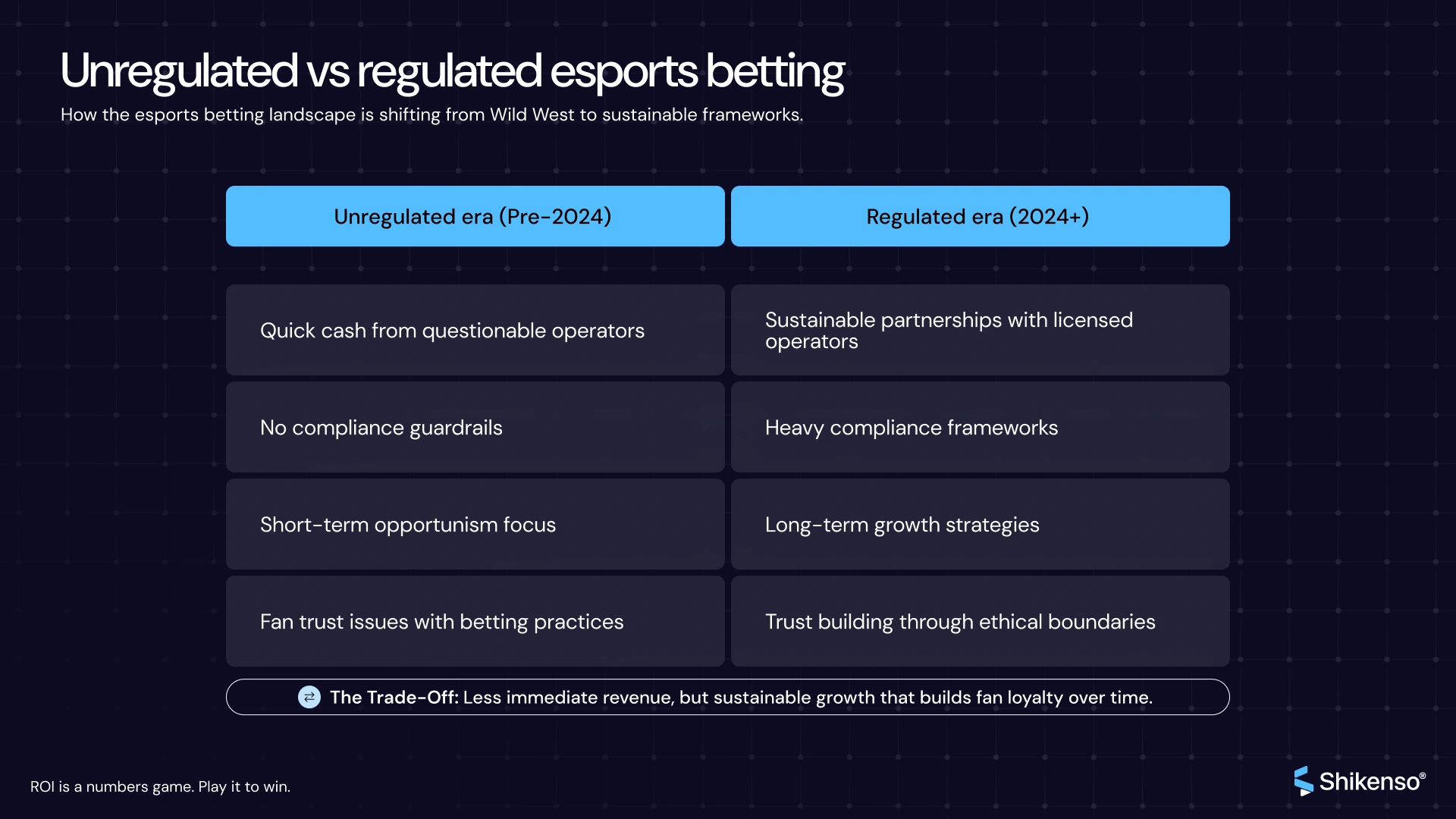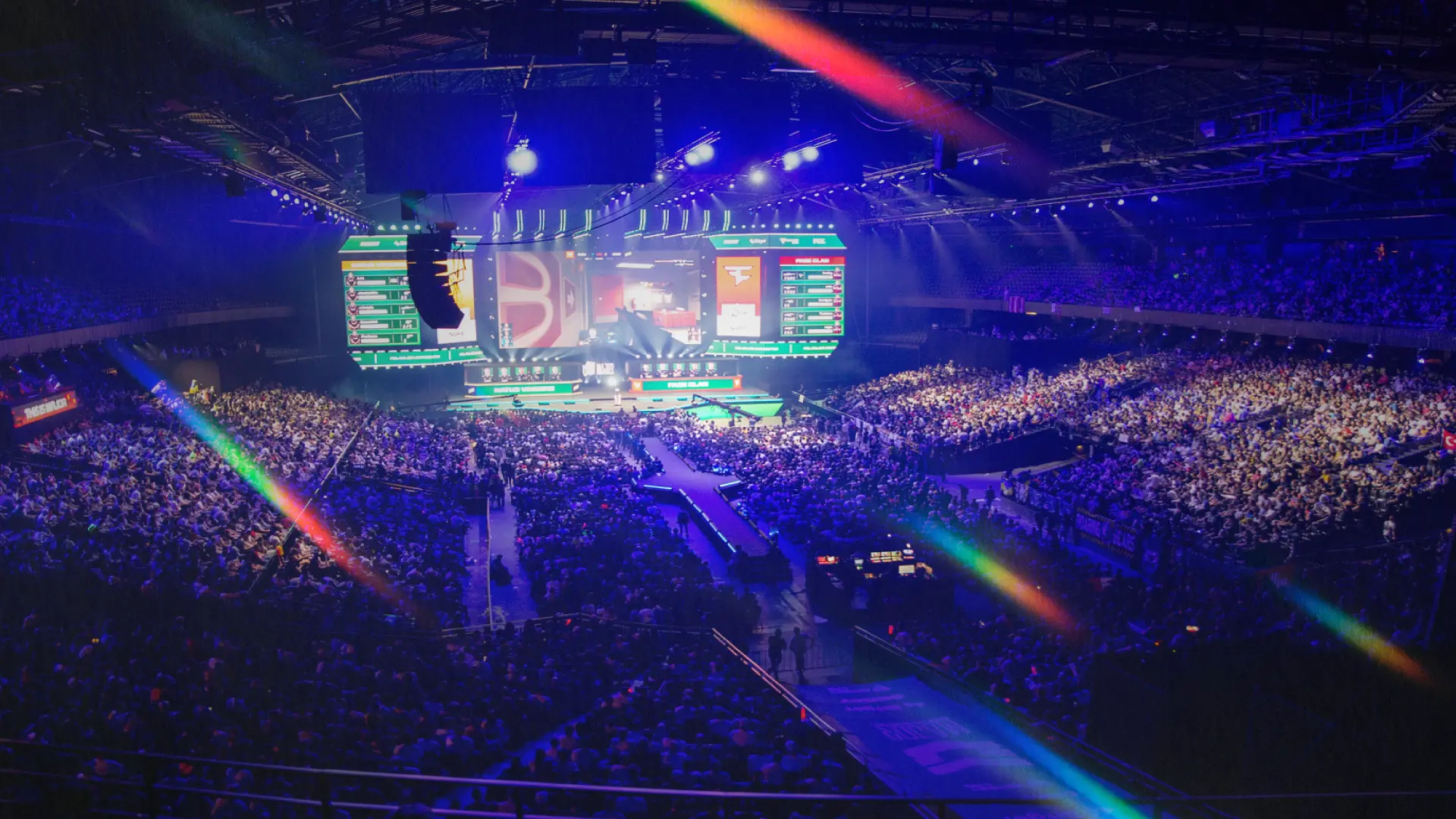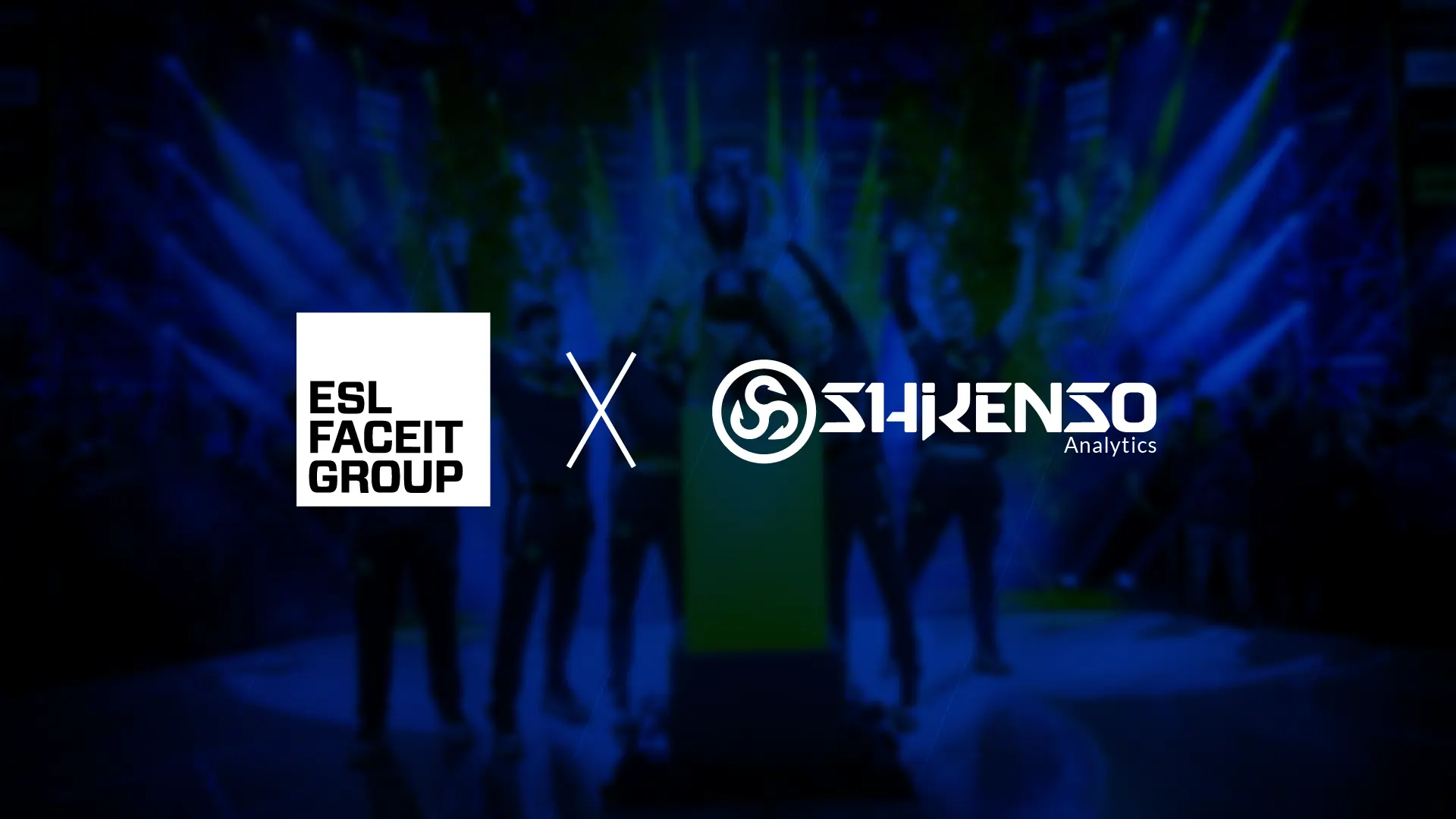Riot Games makes League of Legends and VALORANT, two of the world's biggest esports. For years, they maintained a strict "no gambling sponsors" policy whilst billions were being bet on their games through unregulated operators.
In late 2024, they announced they're allowing regulated betting companies to sponsor their top-tier teams in Americas and Europe with heavy guardrails: vetting every betting partner, requiring official data usage, and keeping their own broadcasts betting-free.
Market Timing Analysis
Regulatory Shifts Create New Opportunities
Football faces increasing regulations around gambling sponsorships whilst esports betting opens regulated pathways. Betting brands have been steadily building their presence in esports since 2014, evolving from controversial outsiders to major commercial forces. This creates a market dynamic where betting brands see new opportunities in esports just as traditional sports doors are closing.
Traditional sports built their gambling relationships in an era of minimal oversight and now deal with the consequences. Esports gets to build those relationships with regulation baked in from the start.

Sustainability vs Short-Term Revenue
Trading Quick Wins for Long-Term Growth
Sponsorship is the lifeblood of esports, even more so than traditional sports, which have massive broadcasting and pay-per-view revenues. Esports is relatively young, really taking off in the mid-2010s and during the pandemic, so every sponsorship deal counts for teams and tournament organisers.
The shift from the early "Wild West" days towards regulated frameworks will inevitably cost some revenue in the short term. Some betting brands might pull back due to compliance costs or advertising restrictions. This regulatory maturity is crucial for sustainable growth.
When fans know that advertising and product practices are within legal limits and ethical boundaries, it builds trust and loyalty. Some unregulated betting money might disappear, but it's being replaced by partnerships with legitimate, licensed operators who are in it for the long haul. The industry is trading short-term opportunism for long-term sustainability.
Innovation Requirements
Product Development for Digital-Native Audiences
Innovation is crucial for staying relevant. Esports games themselves demonstrate this principle. Industry voices are calling for new esports titles because the biggest ones like League of Legends and Counter-Strike are legacy games. Even when the core doesn't change dramatically, they evolve: new heroes, map updates, CS:GO to CS2.
What esports audiences expect:
- Constant product evolution and seasonal updates
- New bet types around in-game events and mechanics
- Fantasy-style competitions and engagement models
- Mobile-first experiences that match gaming habits
- Real-time, data-driven betting opportunities
Traditional sportsbook formats don't work when targeting digitally native esports audiences who expect constant innovation. The esports audience craves new experiences. They're used to games that evolve seasonally and introduce new mechanics. Betting operators need to match that energy with new bet types around in-game events, fantasy-style competitions, or completely different engagement models.
The global esports betting market is growing at 13.7% CAGR, but that growth will only continue if operators innovate. Standing still means falling behind. Just like League of Legends maintains its core whilst adding new champions, successful operators will iterate on existing products with loyal user bases whilst testing new concepts.
Esports betting audiences aren't just traditional sports bettors who happen to like gaming. They're fundamentally different with different expectations around innovation and digital experiences.
Regulatory Challenges
The criticism that loot boxes are a form of wagering is legitimate, and it comes down to basic mechanics. Players pay real money for randomised outcomes with potential valuable rewards. The psychological hooks are identical to traditional gambling.
Publishers have most of the power, yet they fail to step up and make thoughtful decisions. Instead of proactively addressing these issues, they seem to react only when forced by regulators or public pressure. Many operators are willing to welcome proper regulations and want clear rules to operate within.
Before making any major decisions, publishers should sit down with the broader industry: operators, regulators, advocacy groups, even content creators. Too often, decisions feel rushed or poorly thought through.
The loot box debate isn't going away. Publishers who ignore it are setting themselves up for regulatory intervention they won't like. Operators who get ahead of it with transparent, ethical practices will be the ones still standing when the crackdown comes.
Market Data Analysis
Revenue Projections and Audience Behaviour
The global esports betting market is projected to reach £2.2 billion in 2025, with the United States generating £680 million. This represents an audience that's digital-first, mobile-native, and expects the kind of real-time, data-driven experiences that traditional sports betting is only just starting to figure out.
Brands are increasing their esports sponsorship performance because they're making data-driven decisions about which tournaments, teams, or creators actually deliver results. The same principle applies to esports betting operators: clarity over assumptions translates into better investments and measurable business impact.
Nearly 60% of esports bettors now engage via mobile platforms, reflecting the strong shift towards mobile-first gaming and betting behaviour.
The Regulated Frontier
Esports betting represents opportunity for betting operators, but only for those willing to play by new rules, innovate constantly, and build for sustainability rather than quick wins. The Wild West days are over. The frontier is being settled by operators who understand that regulated, innovative, audience-first approaches win in the long run.
The operators entering esports betting now have an advantage their predecessors didn't: they get to learn from mistakes that have already been made. They don't have to guess at what works because the data exists. They don't have to test regulatory boundaries because the frameworks are being built.
The frontier is open for operators who understand the terrain. Success requires getting it right to make esports betting a sustainable revenue stream with audiences traditional sports can't reach.

Get new insights straight to your inbox
Don’t miss out on the insights that the press and media rave about!






